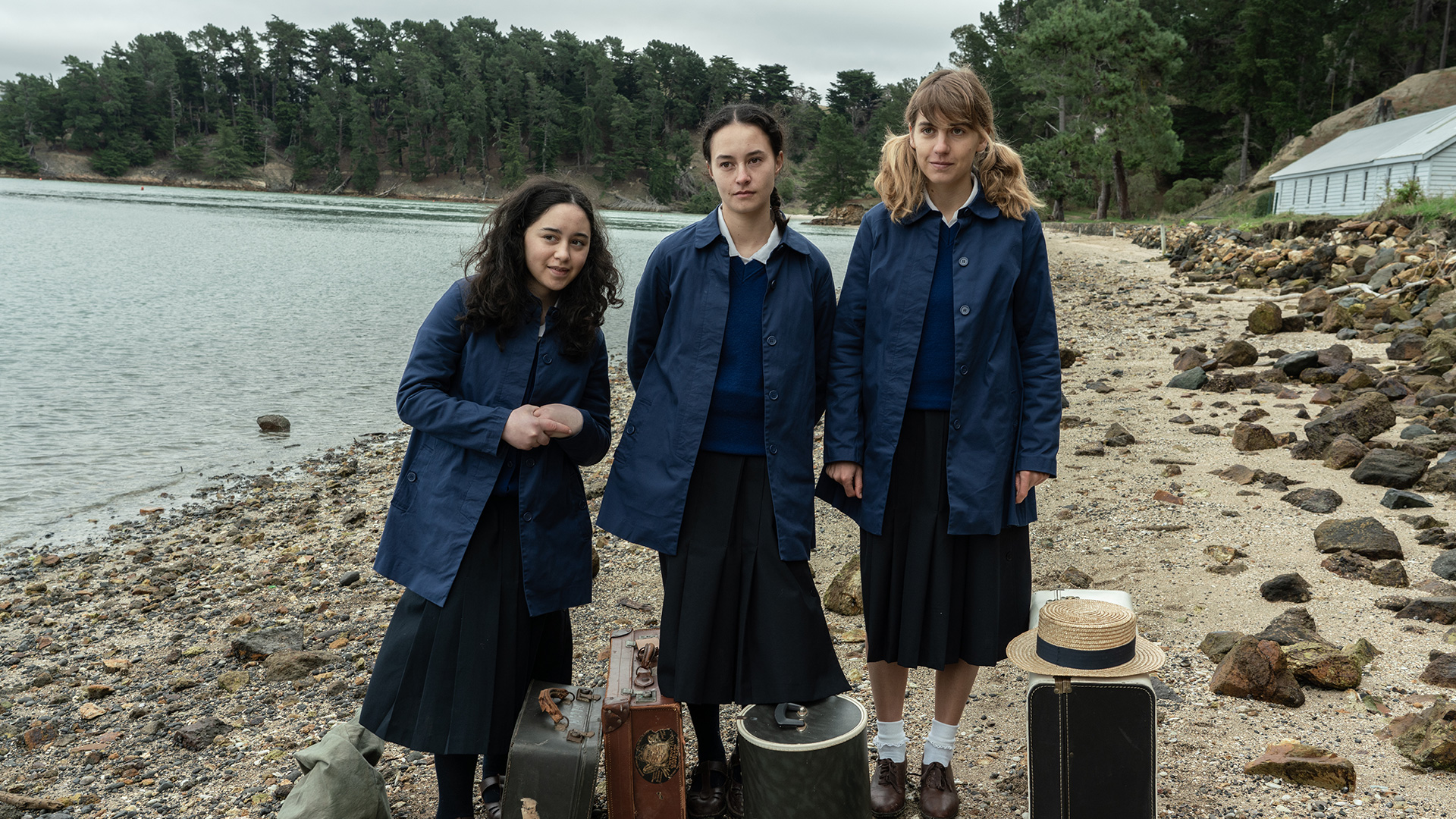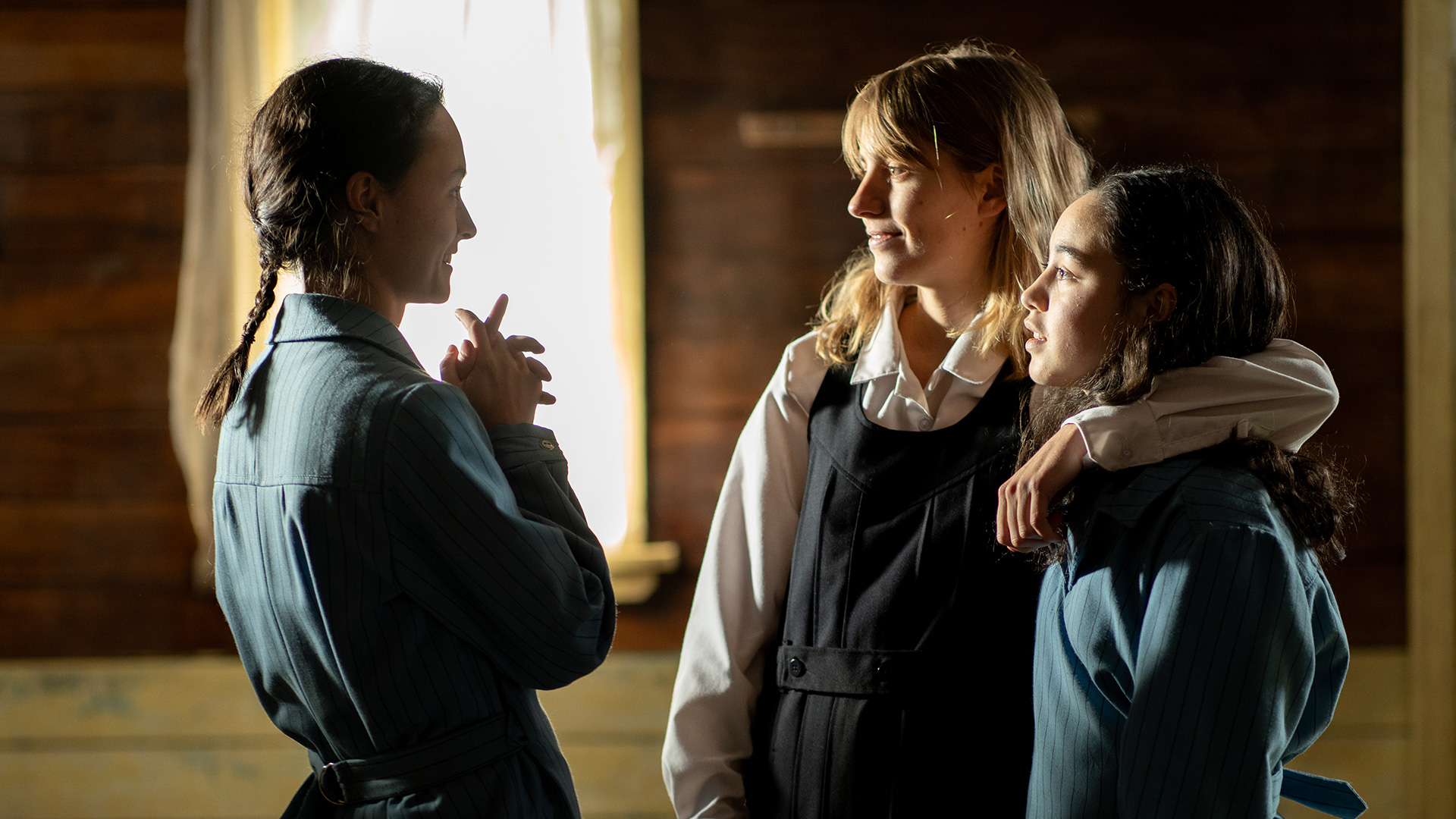It’s impossible to resist the rebel alliance in We Were Dangerous
It may not be based on a true story, but there’s an historical honesty to director Josephine Stewart-Te Whiu’s feature debut.

The Special Jury award-winner at SXSW 2024, We Were Dangerous tells the story of a band of teenagers in 1954 New Zealand who attempt to escape an institution for delinquent girls. The film’s powered by a burning sense of sisterhood, Liam Maguren writes, with its three talented leads adding buckets of fuel to the fire.
It may not be based on a true story, but there’s an historical honesty to director Josephine Stewart-Te Whiu’s feature debut We Were Dangerous that gives its story of teen rebellion a distinctive drive. Set in 1954 Aotearoa, the film centres on a tight trio of young women bundled with a group sent to an institution for delinquent girls.
A ‘delinquent girl’ by 1950s New Zealand standards means a young woman who has engaged in a very cantankerous, very Christian definition of moral endangerment. Defied the system? Go straight to the institution. Had sex out of wedlock? Go straight to the institution. Made out with a fellow girl? You better believe you’re going straight to the institution.
Once there, the goal is to get these girls “primed for marriage.” It’s a shudder-inducing phrase that implies a hefty amount of oppression: a marriage-worthy lady isn’t rowdy, rebellious, horny, lesbian, or atheist, and she keeps that Māori stuff to a minimum.
Nellie (Erana James) smells every note of bullshit wafting from this system. A failed escape attempt from her previous lock-up sees her and her cousin Daisy (Manaia Hall) sent to a new kind of institution on Ōtamahua, a remote island formerly home to a leper colony, where they’re all kept under the hawk-like gaze of a devout matron (Rima Te Wiata). The cousins quickly befriend Lou (Nathalie Morris), the only other girl willing to tough it out with them in the mankiest hut on the island, and perhaps join Nellie and Daisy for another Great Escape.
The idea of a Christian entity setting up a rehab island isn’t a complete work of fiction. The Salvation Army occupied Rotoroa Island to treat alcoholism and drug addiction for nearly a century before shutting it down in 2005. We Were Dangerous puts a slightly more comedic slant on the concept by forcing those in charge to quickly learn how to run a self-sustainable camp—a task they’re clearly ill-equipped to handle, especially with a group of supposedly out-of-control teenage girls in their care.
The laughs lighten the load of the heavier subject matter. Colonialism and conversion therapy cast dark shadows over New Zealand’s recent history, with Stewart-Te Whiu using those shades to illustrate her story, working with a script from writer/cartoonist Maddie Dai. There’s one particularly gnarly, but tastefully depicted, plot turn that both elevates the stakes and reflects misogyny’s diabolical depths, even if it’s not ripped from an actual horrific moment from the country’s still-pretty-horrific history of abuse in state care.
To cut through this darkness, the film finds a roaring light within the camaraderie of its three excellent leads. Hall projects a youthful innocence onto Daisy that clashes with the character’s world-weariness, while Morris lifts Lou with the endearing vitality of a privileged but suppressed teenager who’s finally found a sense of belonging. They add buckets of fuel to the burning sense of sisterhood igniting We Were Dangerous.

Left to right: Erana James, Nathalie Morris and Manaia Hall
If Daisy and Lou are indeed dangerous, then Nellie would be the tip of the spear. Wise beyond her years but still revelling in the cheekiness of adolescence, James absolutely nails the character’s headstrong sense of justice and heartful loyalty towards those she cares about. James radiates these qualities every second she’s on screen: you see it in her fired-up eyes; hear it in her unwavering voice; feel it in her Big Cousin energy. It’s impossible to resist the urge to join her rebel alliance.
Te Wiata makes for an easy-to-hate authoritarian, an unholy combo of Matilda’s Ms Trunchbull and Chicken Run’s Mrs Tweedy with a big fat love for Jesus. While her character invites anger, especially with the remorseless way she treats the girls, there’s a subtle sadness Te Wiata brings to the matron that draws slivers of sympathy towards someone seemingly irredeemable. As the film progresses, a depressing truth comes closer to light: she’s been “primed for marriage” for most of her life.
Te Wiata narrates the occasional flashbacks Stewart-Te Whiu cleverly implements to round out the main characters. The climax also relies on a flashback, but it doesn’t feel as rewarding, presenting what should be the most rousing moment in the film as something we learn about, rather than experience with the characters. It’s a slightly muted way to end an otherwise confident and tremendously likeable feature directorial debut.
























